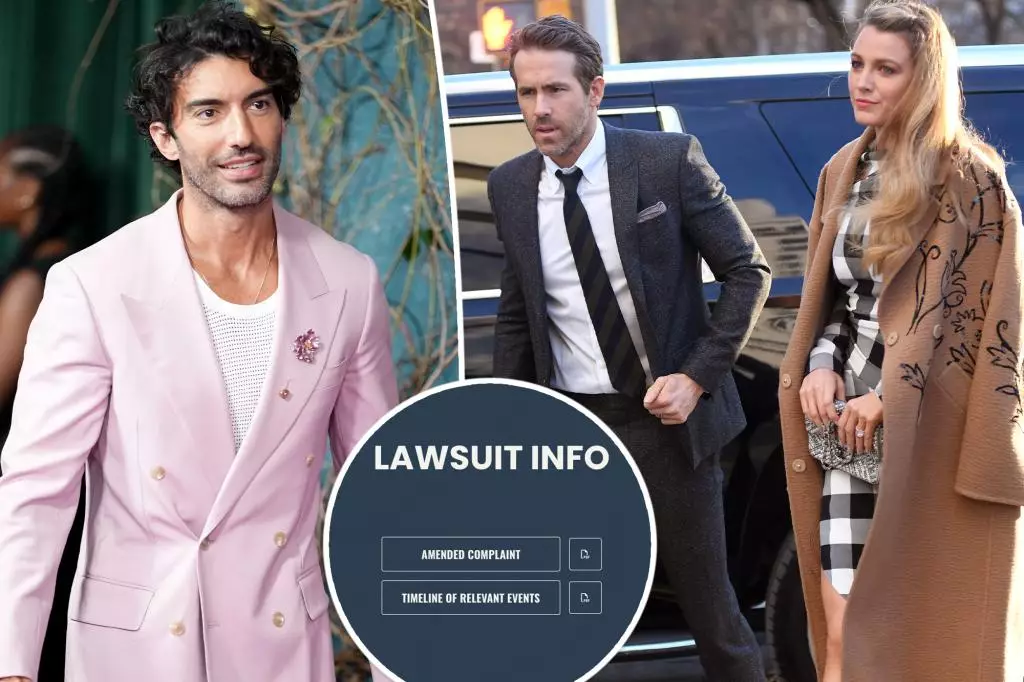In the wake of sexual harassment allegations levied by Blake Lively, Justin Baldoni has taken an unconventional route by launching a dedicated website to present his side of the story. This website aims to clarify the narratives surrounding the $400 million defamation and extortion lawsuit he filed against Lively, her husband Ryan Reynolds, and publicist Leslie Sloane on January 16. This bold move reflects a growing trend among celebrities to utilize digital platforms for self-defense in legal matters, allowing them to directly communicate their perspectives to the public.
Baldoni’s website links to a comprehensive 168-page document that meticulously outlines a timeline of events pertinent to the case. This document includes a variety of textual evidence, ranging from private messages to emails that supposedly took place between Baldoni and Lively during the production of the film “It Ends With Us.” The inclusion of these unfiltered communications serves as a crucial attempt to counter allegations and aims to paint a more nuanced picture of the interactions that occurred on set.
Highlighting the depth of his engagement with Lively, one text from April 2023 shows her attempting to reassure Baldoni about the playful essence of their collaboration: “If you knew me (in person) longer, you’d have a sense of how flirty and yummy the ball busting will play. It’s my love language.” This insight suggests an informal dynamic that may contradict the claim of harassment, showcasing how complex such professional relationships can be.
Despite the seemingly amicable exchanges, the allegations brought forth by Lively carry significant weight. Her claims, rooted in feelings of discomfort and reports of inappropriate comments, were initially filed with the California Civil Rights Department on December 20. Subsequently, she escalated matters by launching a formal lawsuit against Baldoni in New York, sparking a media frenzy that highlights the complexities of dealing with accusations in a public arena.
The dynamics are further complicated by Lively and Reynolds’ request for a gag order against Baldoni’s attorney, arguing that his public statements could potentially influence jury perceptions. This request underscores the heightened stakes involved in high-profile legal battles. The upcoming trial, scheduled for March 2026, promises to create waves in the public eye even before its commencement, placing all involved under extensive scrutiny.
Baldoni’s decision to go public with his defense on a dedicated website raises questions about privacy, reputation, and the potential consequences of celebrity culture. As audiences consume narratives shaped through social media and public statements, the lines between fact and perception blur. The varying interpretations of Baldoni’s actions and Lively’s experiences illustrate the multifaceted nature of such disputes, making it imperative to sift through the rhetoric to discern deeper truths.
As the case unfolds, the legal and emotional ramifications for all parties involved will undoubtedly continue to captivate public attention. In a world where personal lives become fodder for public commentary, this situation serves as a stark reminder of the complexities surrounding love, power, and professional relationships within the entertainment industry.

